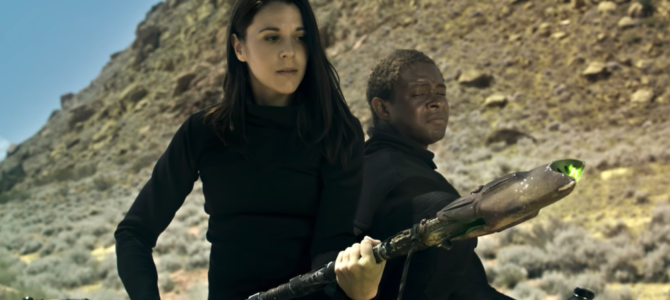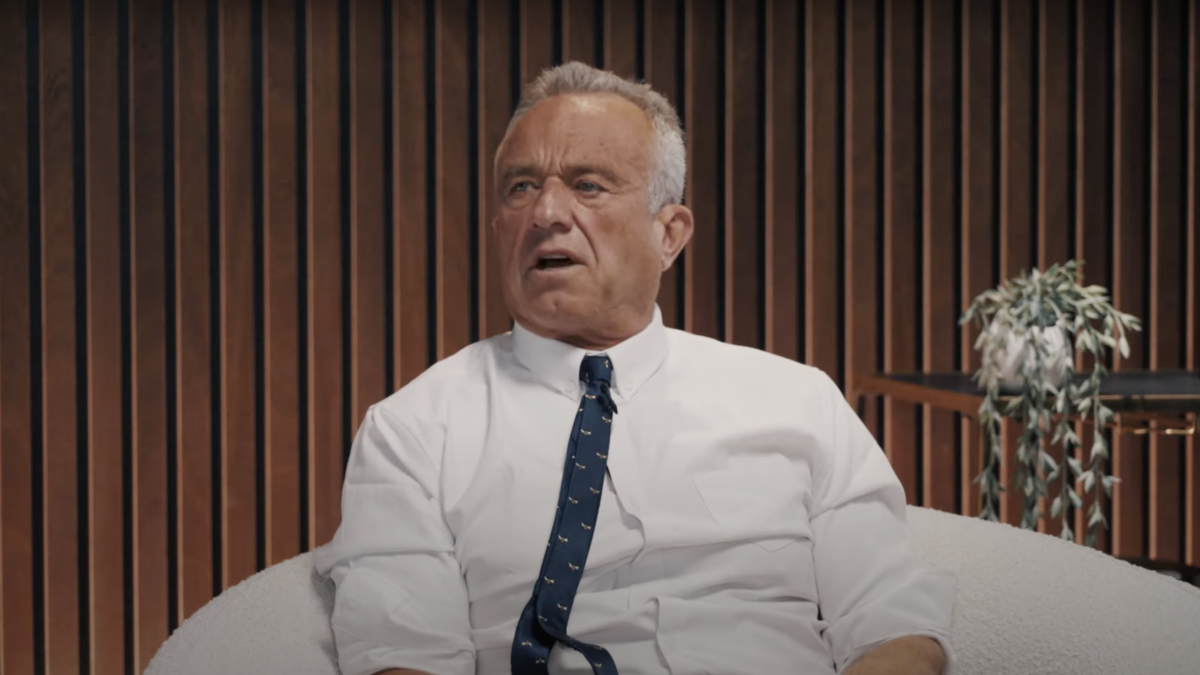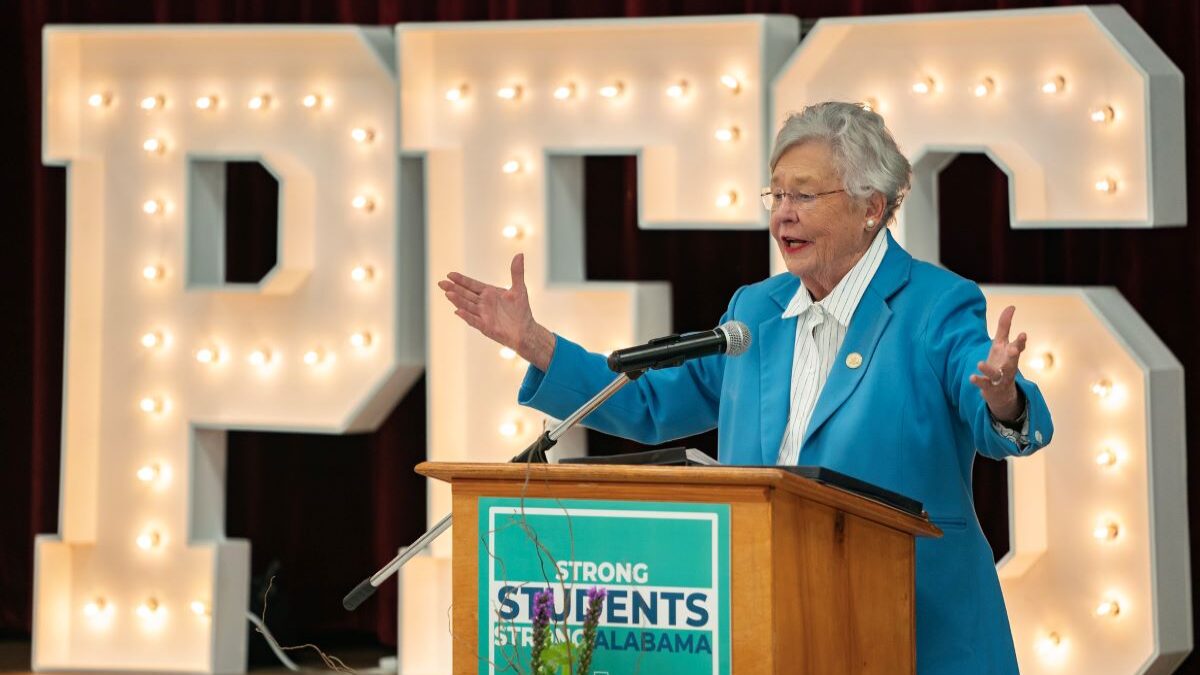
Over the last decade, cable TV has become a wasteland, all but devoid of any family-friendly entertainment. Wholesome content has become extinct as networks have embraced crudeness, upping the ante on sex, violence and language to a point where even network TV looks a lot like HBO programs did in the 1990s.
Even the former network ABC Family changed its name to Freeform in order to signal their change in intended audience, pushing their boundaries and abandoning their original purpose. If you’re a science fiction or fantasy fan, you’ve been out of luck, as it’s been impossible to find a show to watch with the family since Game Of Thrones swept the nation by storm with its over-the-top debauchery.
Family-friendly sci-fi returned, though, when BYU launched a free streaming service BYUtv as an alternative to mainstream programming. The network has a lineup mostly comprised of BYU-based sports and reality concepts, but one show stood out as different, as something bold, fresh, and exciting. That show is “Extinct,” which boasts co-creation by Orson Scott Card, the author of the #1 New York Times Bestselling and multi-award winning novel, “Ender’s Game.”
“Extinct” is about a post-apocalyptic future where humanity was wiped out by an alien race. Mysterious and benevolent drones are bringing back people from the height of the alien invasions, with their memories intact, in order to try to repopulate Earth. But there is another dangerous alien presence on Earth, parasites known as the Skin Riders, who subjugate human bodies as hosts. Mysteries unfold as to how the world came to this point, and it’s all done in a low-violence, family-friendly manner.
I spoke with writer and co-creator Aaron Johnston about the show in this exclusive interview for The Federalist:
JD: Science Fiction TV and Movies are pushing the boundaries of more violent and sexual content to try to draw viewership, but Extinct goes the opposite direction by being family-friendly. Was that part of the intention in writing the show?
AJ: I’ve long had the rule as a novelist that I would never write anything that I would be ashamed to have my children read. I love my children. I love how pure and good and innocent they are, how untainted from the world they are. I recognize they’ll be exposed to all kinds of awful things eventually, but they certainly won’t be exposed to them by me.
I’ve never written a sex scene, and you will never find harsh profanity in any of my writing. I think it’s completely unnecessary for the type of stories I like to tell. I read about films like “The Wolf of Wall Street,” for example, which according to Wikipedia has over 500 instances of the F bomb, and I think, Why? What good does that do for the world?
What’s been wonderful about Extinct is BYUtv understands that. Family-friendly programming doesn’t mean that bad things don’t happen. They have to. You don’t have a story if they don’t. Family-friendly programming simply means that parents don’t have to worry about objectionable content being thrown in their children’s faces.
For Orson Scott Card and I, we told the story in the way we always tell all our stories. We didn’t have to change our methodology. We didn’t have to censor ourselves and think, “Oh wait, we can’t do this nude scene. I forgot. This is BYUtv.”
JD: How was BYUtv to work with? Are they committed to building a network to compete with more family-friendly content compared to other streaming services?
AJ: Working with the network was great. They were very supportive throughout the entire process. There were some changes at the executive level while we were shooting the season, but these didn’t slow our progress.
As for the network’s commitment to family-friendly content, they are wholly committed. Their tagline is “See the good in the world,” and it’s based on the premise that entertainment can edify us, that despite this crazy, dark world we live in, there is light and goodness to be seen. I believe that myself. And I applaud BYUtv’s effort to carry that message to the world.
JD: There’s a couple of faith-friendly elements in the show as well, and I can’t remember much science fiction at all which painted belief in God as a good thing. Was this more for BYU’s programming requirements or did you want to present something different here as well?
AJ: BYUtv never asked us to introduce religion or faith. That was never a request. Nor did they ever insinuate that we should go down the road. What they asked for was uplifting content. Action does not make a story. Explosions, in and of themselves, aren’t interesting. You have to care about the characters. And you have to believe that THEY care about something too, something bigger than themselves. Maybe that’s family honor, or their loved ones, or the spirit of Christmas. Whatever it is, if the characters don’t believe in it absolutely, if they’re not willing to sacrifice and fight for it, then what’s the point of the story?
I find religious experiences fascinating. Not just those seen in my own faith, but in other faiths as well. The connection with the divine. That reaching for understanding and purpose. That prick of the heart and mind as truth is clarified. That is part of the human experience. It has been since man first looked at the stars and asked himself, “What is that up there? Who put that there? Is there a being greater than me?”
Those kinds of questions surface in “Extinct” because that’s what humans do. We seek meaning. We try to understand. We stare at the unknown until our wonder becomes a part of who we are. The Reborns are no different.
JD: Orson Scott Card is one of the greatest sci-fi writers of all time, and you’ve worked with him very closely on a lot of projects. How has he influenced you as a writer?
AJ: I owe everything to Orson Scott Card. He has been a mentor to me for over fifteen years. He gave me my first opportunity, and my career has blossomed from there. I have the utmost respect for him. He’s often excoriated for adhering strongly to his religious beliefs, but I know him better than most, and I assure you that he is one of the kindest, most gracious human beings I have ever known.
It’s the reason why he’s so beloved as a writer. There is compassion in his characters. There is nobility. There is genuine love for our fellowman. There is greatness and goodness. All of those qualities come from the heart of Orson Scott Card. He can write these characters because he is these characters. He’s not perfect, mind you. He has his faults like the rest of us. But I know the man, and he is Ender Wiggin. He is Valentine. He is Bean. Their brilliance, their goodness, their courage. That isn’t pulled out of nothing. It’s born from a portion of the writer’s soul.
That’s hard to teach, because we are who we are. But I’ve seen from Scott’s example that being a good writer begins with being a good person. Sure there are brilliant writers who are class-A jerks, but these aren’t the writers that capture our hearts. Those are the writers that wow us with language and style. They’re not the writers that wrap us in a story like a blanket. Scott is beloved because he is both: a master of language and a great storyteller. In fact, he doesn’t even TRY to be flowery with his language. He simply knows the most elegant and meaningful way to tell the story.
Before I sit down to write a novel, I open an Orson Scott Card novel and read a chapter, just to calibrate my brain to his novelistic pace and voice. That’s my secret, and I give it to anyone freely. Read your favorite author, bask in the ease at which the story spills across the page, and then, when you feel that rhythm, start writing.
JD: “Extinct” has a strong thematic element about genocide, something also familiar to the “Ender’s Game” universe. Was this an intentional callback for fans of the “Ender’s Game” work?
AJ: No. We didn’t intentionally plant Easter eggs to other stories in the OSC universe. We weren’t nodding to “Ender’s Game.” The idea of genocide organically surfaced as we developed what the Ancestor is and what it contains. That’s how stories grow and take shape, as you consider the implications of the rules you establish. Oh, so this is what the Ancestor houses? Then what happens if we destroy it? What are the ramifications of that? What dies exactly? And what would that feel like to a living Skin Rider?
You have to constantly ask yourself questions as you go along because the story should follow the thought processes of your heroes. What would they be asking? How would they react? What would this mean to them?
But I digress. To answer your question, we wanted “Extinct” to be its own unique universe. We didn’t want it harkening back to other worlds or other stories. We wanted it to be completely new.
JD: Having worked on a high budget film like “Ender’s Game” and something much smaller like “Extinct,” were there differences from a writing perspective you had to consider?
AJ: If you’re a screenwriter, TV is where you want to be. There is such a huge market for great writers in television, and it’s far more rewarding than film.
In film, when so much money is at stake and the risk is so high, you have dozens of executives hovering over the writer and questioning every decision. Should the hero say that? Shouldn’t she say this instead? This line is four lines long in the script. Isn’t that too long? That seems too long. Also, the villain isn’t mean enough. Also, doesn’t the hero need a sidekick? Also, the hero isn’t likeable. We heard in a focus group that the hero should be likable.
But in television, the writer has so much more freedom. In film, the director is king. The set is her domain. She calls all, decides all, demands all. The buck stops with her. But in television, the showrunner is the head writer, because the writers are the most consistent voice over the course of the season. Directors come and go. They pop in, direct their episode, and then vamoose. But the writers are there for the long haul and have to keep the entire season crammed inside their heads.
The networks place greater responsibility and confidence and creative control on the writers.
JD: Are there any works of sci-fi works which influenced you on “Extinct?”
AJ: The literature that influenced me the most were the books that I read as I did research for the show or while I was writing the show. The best of the bunch is a lovely and terrifying nonfiction book entitled “This is Your Brain on Parasites” by Kathleen McAuliffe. You’ll never look at the world the same way again. Fascinating read.
JD: Several of the actors had to play different roles in the show (with the Skin Riders or past versions of themselves). Were there any difficulties in filming this or was it more fun for the actors?
AJ: The actors had a blast. As a performer, you’re always looking for roles that stretch you, that allow you to showcase your talent and range. When our cast read a script and learned they’d get a chance to play a different version of themselves, they were elated, especially if that new version was starkly different from the one they currently embodied.
My favorite scene of the entire season is when Jax has a conversation with a hologram version of the real Jax. Human and Skin Rider. When I wrote that scene, I knew Matt Bellows, the actor, would pull it off brilliantly. It is, in a single scene, the crux of the season. What does it mean to be human? What does it mean to be a Skin Rider? There’s some serious meat in that scene, and it rests upon the shoulders of a single actor. Matt ate it up.
As you point out, this does create production challenges, especially if two characters played by a single actor are in the same shot. This only happens a handful of times in the season, but our editor and visual effects team were easily up to the task.
JD: The ending of the first season sets up a potential season two which would look vastly different. Can you give any kernels of your ideas for that? How far do you have the show planned out, should it be picked up for more?
AJ: Television has to be fluid. I hear of showrunners who say they have their show mapped out for five seasons or whatever, but I don’t believe it. Or at least, I don’t believe that the map is as dense and laid out as people assume. You have to have some flexibility. New ideas will come throughout the season and in the actual writing of the episode. You’d be a fool to discard those new ideas because of some stringent adherence to your original plan or outline. I never operate that way with novels, and neither does OSC. That’s one of the lessons I learned from his as a writer. If better ideas arise along the way, embrace them. Run with them. Use them.
Here’s an example. I created a ten-episode outline for season one long before we shot the pilot, based on extensive story sessions I had with Orson Scott Card. The outline for each episode was about a page in length. All the main narrative events were there. Every episode had a story for our main characters. The road was paved. The stage was set.
But that outline didn’t include the character Duncan because I hadn’t created him yet. He didn’t spring to mind until I sat down to write episode two.
Now, if you’ve watched the first season, you know how crucial Duncan is to the story of the show. He is ever present. He is a critical entity. Had I resisted the impulse to include him in episode two and embrace his presence in the show, season one would have been starkly different and poorer for it.
I know what happens in season two. There is an extensive outline written. If BYUtv gives us the opportunity to tell that story, I’m very excited about doing so. But I don’t believe that I have every beat of the story in my head right now. Much of it will be created as we move forward and OSC and I dive deeper into that world.
JD: You mentioned on Twitter to write BYU and tell them they enjoyed it. Who do we address that to?
AJ: Yes. If you want “Extinct” to continue, write a letter to BYU Broadcasting at the address below. If you watched the show with your kids, tell them that. If you and your kids enjoyed it, tell them. If you thought the show had a good message, tell them. If you want another season, tell them that too.
BYUtv
c/o Content Director
701 E University Pkwy
Provo, UT 84602
You can watch Extinct on the BYUtv app, available on most platforms, or online at http://www.extinct.tv









